INSIDE ISSUE 19.34 | Aug. 21, 2020
 BIG STORY: ‘Biggest part of the budget’ sees 4.9% increase in enrollment
BIG STORY: ‘Biggest part of the budget’ sees 4.9% increase in enrollment
NEWS BRIEFS: Busy ahead in Columbia starting with revenue look Monday
COMMENTARY, Brack: Don’t get conned on postal service, election process
SPOTLIGHT: The Felkel Group
FEEDBACK: Send us your comments
MYSTERY PHOTO: Unusual building
HISTORY: Learn about the palmetto flag, college impact and a big loss
Pandemic impact: Medicaid enrollment up 4.9% in S.C.
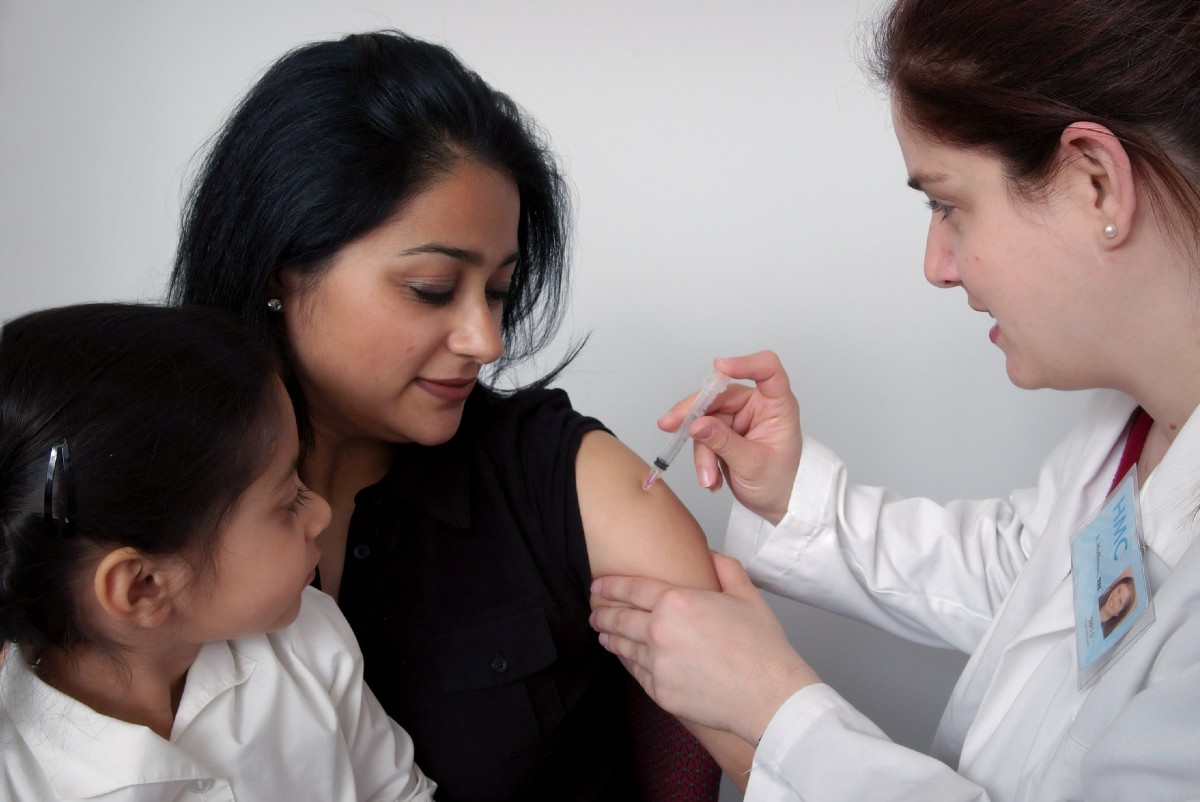
By Lindsay Street, Statehouse correspondent | The number of adults covered by Medicaid in South Carolina rose 4.9 percent from March 1 to July 1 as the impact of the recession caused by the coronavirus pandemic roiled the state.
Experts say the rise could be just the beginning of an enrollment spike in a program that accounts for billions of dollars in the state budget.

“More people may be coming,” Palmetto Project Director of Programs Shelli Quenga said this week, adding that she was surprised it hadn’t risen by more. “(4.9 percent) seems like a low number.”
Meanwhile, Democratic lawmakers are increasing calls to expand eligibility for the program.
As part of the Palmetto Project’s InsureSC program, Quenga and others work to help South Carolinians find affordable health care coverage, including helping them navigate the Medicaid process. She said she has received more calls from people saying they thought their job was coming back but after several months of waiting, they now need health coverage as the state is seeing yet another uptick in those seeking unemployment insurance.
The increase to Medicaid’s Healthy Connections program in South Carolina from March to July has been 51,681 people, according to data obtained from Medicaid agency S.C. Department of Health and Human Services (DHHS). As of July 1, Healthy Connections, which offers state and federal subsidized insurance for adults, covered 1,091,999 people. In South Carolina, only about 40 percent of beneficiaries are adults, according to DHHS.
‘The biggest part of the budget’
Walhalla Republican Sen. Thomas Alexander said the increase in enrollment was expected.
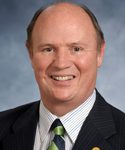
“That’s not unusual when we’ve seen economic downturn over the years, it normally goes up some. That is consistent and does not surprise me under the circumstance,” he said.
Alexander and Beaufort Republican Rep. Bill Herbkersman lead the budget subcommittees on DHHS spending.
“As we all know, Health and Human Services is the biggest part of the budget for the state. It would definitely make an impact,” Herbkersman said. “It’s all speculation right now but it’s not going to be good.”
In the 2018-2019 budget year, South Carolina spent $1.8 billion on Medicaid services with a $6.2 billion match from the federal government, according to a January 2020 presentation from DHHS. Medicaid services in South Carolina are generally split with 30 percent state spending and 70 percent federal spending. With that year’s state spending plan at $9.3 billion, the state’s share of Medicaid spending accounted for about 19 percent of its total budget.
“We’ll get an update from the agency on what it looks like from the financial standpoint,” Alexander said this week.
Like many in and out of Columbia, Alexander and Herbkersman are awaiting Monday’s Board of Economic Advisors meeting on how the 2019-2020 budget ended amid the pandemic, and what revenues could look like for the current fiscal year. The House and Senate will reconvene for a special session mid-September to draft a reactive budget.
A national trend
The increase in Medicaid enrollment is part of a national trend.
Kaiser Health News (KHN) reported July 28 that states around the country are seeing a spike in Medicaid enrollment. Looking at data from early in the pandemic, March 1 to April 1, the report estimated that South Carolina saw a 1.15 percent enrollment increase. Kentucky saw one of the biggest spikes in that time period with nearly 7 percent increase.
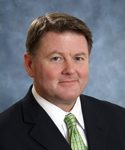
In the KHN article, Joan Alker, executive director of the Center for Children and Families at Georgetown University in Washington, D.C., said Medicaid enrollment will likely continue to increase as job losses mount and more people become eligible.
However, she added, Medicaid numbers may not be an accurate reflection of the economy since “people have more immediate needs than securing health coverage, especially if they are feeling well.”
That was echoed by Kaiser Family Foundation Vice President Robin Rudowitz who told KHN there is a lag time of weeks or months between job loss and Medicaid enrollment.
Quenga said another thing keeping people off Medicaid rolls is the complicated application process that makes it difficult to tabulate income and non-traditional families.
“The system is always challenging. It’s designed to be complicated and challenging so that, in theory, only the most worthy can run the gauntlet and get the coverage. This is a whole new crop of people … They had no idea that this was so complicated,” Quenga said. “It is very tricky for someone to do this on their own without an advocate.”
A case for expanding Medicaid
Democratic lawmakers say the ongoing pandemic has exposed the state’s need for expanding Medicaid under the federal 2010 Affordable Care Act. South Carolina is one of 12 states that has yet to expand Medicaid to include adults making 100 percent to 200 percent of the federal poverty level.
Recently, Missouri, Oklahoma and three other mostly conservative states passed Medicaid expansion via ballot initiatives. In addition to failing to pass legislation expanding Medicaid, Democrats in South Carolina have failed to get such ballot initiatives passed to let voters decide.
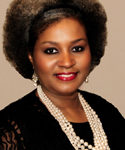
“It makes sense to get people health care, especially in the pandemic,” Hopkins Democratic Rep. Wendy Brawley said.
Alexander is among the Republicans unswayed by current circumstances. He said concern remains on how the state could pay for its eventual share of the program.
“My focus is on access to health care,” he said. That means, he said, finding ways to get providers to rural areas.
Herbkersman said those pushing for the expansion of Medicaid need to be “realistic in the conversation.”
“How is it going to be paid for?” he asked. “It’s so easy to say let’s do it without saying who is going to pay for it.”
But Brawley called that “a false argument.”
“South Carolina and other states like us with high levels of poverty, we can’t afford not to,” she said, adding that the first years of the expanded program would be shouldered by the federal government. “The number of lives it can save and the number of opportunities (it will create) is going to save on money.”
Studies show expansion has created jobs and saved lives. In South Carolina, a 2019 estimate found that as many as one in 10 older and poor S.C. residents who died in the last five years could be alive today had they had access to care.
Still, Brawley said it will be an uphill battle for Democrats to move the Republican majority in Columbia to action.
“That does not mean we should not be prefiling those bills in December,” she said.
- Have a comment? Send to: feedback@statehousereport.com
Busy ahead in Columbia starting with revenue look Monday
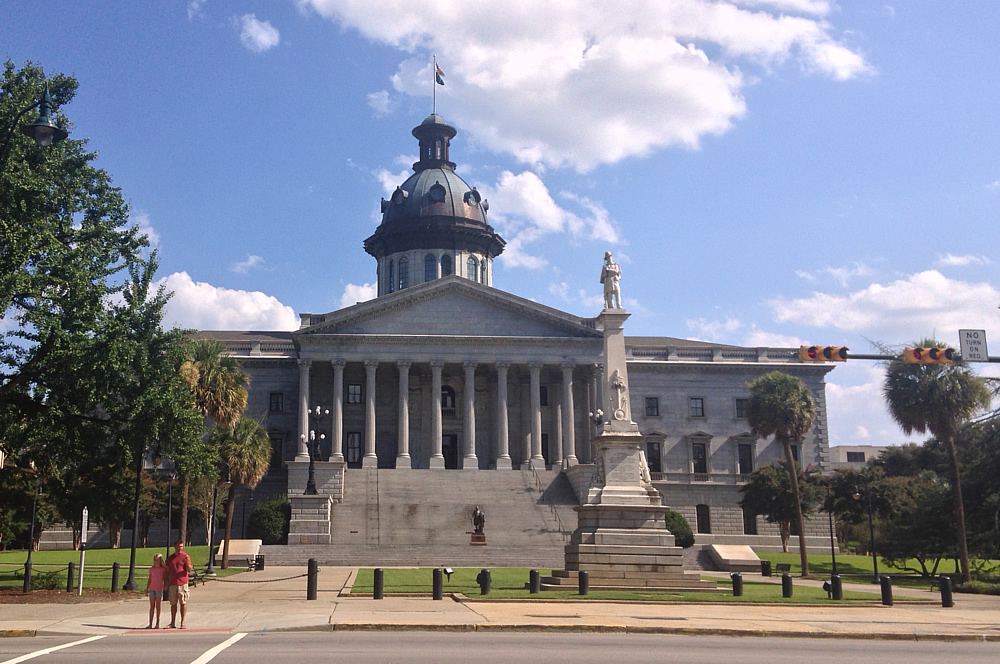
By Lindsay Street, Statehouse correspondent | South Carolina’s legislators will begin a flurry of activity starting Aug. 24 with a meeting of the state budget’s revenue forecasters.
They are expected to answer the ultimate budget questions of how exactly the pandemic impacted the state’s biggest revenue year in history, how much of the projected surplus is still available, and what exactly could the next 22 months look like in this fiscal year.
Those questions are expected to have answers during a 1 p.m. Aug. 24 meeting of the S.C. Board of Economic Advisors, the state budget’s revenue forecasters.
The meeting will take place physically at South Carolina Educational Television’s Bank of America room at 1041 George Rogers Blvd. The public has been invited to join the meeting virtually here or via call-in at 571-317-3112, access code 849-535-589. For questions about the meeting, call 843-734-2265.
Meanwhile, Gov. Henry McMaster said Thursday state lawmakers should hold off on creating a new budget for now.
Other legislative meetings ahead:
![]() House Equitable Justice committee to meet Aug. 25-26. A newly-formed House committee formed in light of racial justice and policing calls around the nation will convene three times next week: 10 a.m. Aug. 25 on sentencing reform, 1:30 p.m. Aug. 25 on law enforcement training and accountability, and 10 a.m. Aug. 26 on criminal laws. All meetings take place in room 110 of the Blatt building on Statehouse grounds in Columbia.
House Equitable Justice committee to meet Aug. 25-26. A newly-formed House committee formed in light of racial justice and policing calls around the nation will convene three times next week: 10 a.m. Aug. 25 on sentencing reform, 1:30 p.m. Aug. 25 on law enforcement training and accountability, and 10 a.m. Aug. 26 on criminal laws. All meetings take place in room 110 of the Blatt building on Statehouse grounds in Columbia.
House Ways and Means panel meets on CARES Act funding.The House CARES Act Ad Hoc Committee will discuss updates to federal pandemic aid spending so far in the state and further expected expenses beginning next week. Meetings, to be held virtually, are at 2 p.m. on Aug. 26, Sept. 2 and Sept. 9. See the agenda here.
Senate reconvenes Sept. 2 on voting. South Carolina’s Senate will meet Sept. 2 to address early voting, according to an Aug. 17 statement from Senate President Harvey Peeler, R-Gaffney. He said while it is unclear “what the situation will be like in November,” the state should prepare now for “safe and secure voting.” Peeler’s announcement did not detail what measures the Senate will consider. Earlier this year, the legislature allowed the expansion of absentee voting in the state ahead of the June primaries amid the coronavirus pandemic, but did not expand that for any other elections. In recent weeks, more have pushed for the state to again expand absentee rules. Those who have joined the call to expand absentee voting have included Peeler, House Speaker Jay Lucas, R-Hartsville, and leaders of the S.C. Association of Registration and Election Officials.
- Related: Lucas, Peeler trying to stop federal intervention into voting questions. Read more.
Senate Finance to meet in early September. A schedule has yet to be released to the public yet, but the Senate Finance Committee staff has confirmed the committee will begin meeting virtually via Zoom around the first of September and over six meetings to discuss the 2020-2021 budget. Check back here for meeting announcements.
In other news:
![]() Keep an eye on the tropics over the weekend. Tropical Depression 13 appears unlucky, depending on all the things hurricanes depend on. A static cone image released the morning of Aug. 21 by the National Hurricane Center shows the storm strengthening to tropical storm-status by Saturday and potentially reaching hurricane-status by Tuesday along the west coast of the Florida peninsula. There is another storm vying for name-status, Tropical Depression 14 (which is expected to remain in the Gulf of Mexico), so it is unclear which storm will get the name Laura or Marco should they both continue to increase in intensity as expected.
Keep an eye on the tropics over the weekend. Tropical Depression 13 appears unlucky, depending on all the things hurricanes depend on. A static cone image released the morning of Aug. 21 by the National Hurricane Center shows the storm strengthening to tropical storm-status by Saturday and potentially reaching hurricane-status by Tuesday along the west coast of the Florida peninsula. There is another storm vying for name-status, Tropical Depression 14 (which is expected to remain in the Gulf of Mexico), so it is unclear which storm will get the name Laura or Marco should they both continue to increase in intensity as expected.
Post Office frustrations aired in S.C. U.S. Rep. Jim Clyburn held a press conference Tuesday decrying changes to the U.S. Postal Service, which were seen as disproportionately impacting rural Americans and potentially causing mailed-in ballots for the Nov. 3 election to go uncounted. That same day, Postmaster General Louis DeJoy announced retail hours won’t change, no mail processing facilities will close, overtime for workers will be approved, and mail processing equipment and collection boxes will remain in place. But it was unclear whether moves ahead of that decision will remain in place — and some, like chicken producers in Maine, are reporting delays impacting businesses. DeJoy was to testify today at the Senate Committee on Homeland Security and Governmental Affairs.
ORS approves $26.1M in broadband spending. As part of the broadband infrastructure component of the CARES Act, the S.C. Office of Regulatory Staff (ORS) has approved the funding of 81 applications submitted by 13 Broadband Service Providers. The move will spend $26.1 million of the $50 million appropriated for expanding internet access in the state. According to ORS, the infrastructure expansion will make high-speed broadband available to 27,994 homes, 771 businesses, and other entities like schools and health care facilities in unserved areas. Projects must be completed no later than Dec. 18.
S.C. Supreme Court to hear case over private school grant program. The S.C. Supreme Court agreed this week to hear arguments in the lawsuit over McMaster’s decision to spend $32 million in federal coronavirus aid on grants to help students afford private school tuition. Read more.
Brittain wins GOP nomination for Horry Co. House seat. Case Brittain of Myrtle Beach earned more than 70 percent of the vote in a special primary election for House District 107 Tuesday against his GOP foe to replace Republican Rep. Alan Clemmons, who unexpectedly resigned earlier this summer. Brittain faces Democratic candidate Tony Cahill and Libertarian candidate William Dettmering III in the Nov. 3 election.
S.C. top attorney seeks S.C. high court opinion on law. S.C. Attorney General Alan Wilson asked the state’s Supreme Court last week to determine whether the state’s monument protection law, the Heritage Act, is constitutional. He asked the court to weigh in on a lawsuit filed by the widow of state Sen. Clementa Pinckney, who is suing to overturn the law passed in 2000 that protects monuments, like those honoring Civil War-era generals or the Confederate battle flag, on public grounds from removal. Read more.
- Related: University of South Carolina athletic standouts are asking for the removal of the late U.S. Sen. Strom Thurmond’s name from the school’s fitness center. Thurmond, an Edgefield native, once touted racial segregation as a Dixiecrat and switched parties in opposition to the Civil Rights Act as a Southern Democrat turned Republican in the mid-20th century. Read more.
- Have a comment? Send to: feedback@statehousereport.com
Don’t get conned on postal service, election process
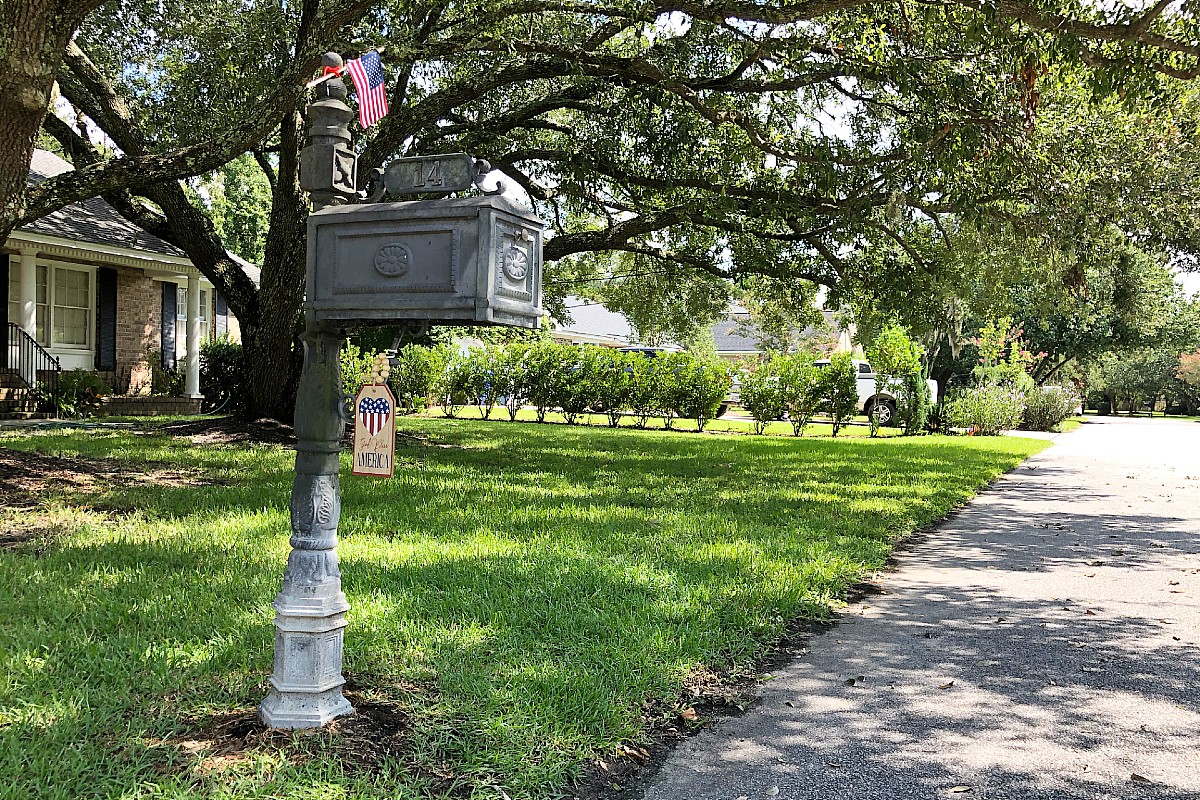
By Andy Brack, editor and publisher | Don’t let yourself be conned by the Con Man in Chief: Postal workers will deliver your mailed-in ballot just fine, thank you very much.
 In fact, President Donald Trump, who unpatriotically has been denigrating the U.S. Postal Service, believes in mail-in voting so much that he’s going to vote (wait for it) by mail.
In fact, President Donald Trump, who unpatriotically has been denigrating the U.S. Postal Service, believes in mail-in voting so much that he’s going to vote (wait for it) by mail.
What Trump is trying to do is make you believe our postal workers, who deliver billions of holiday packages every year, can’t effectively deliver several millions of absentee ballots. They can. It will be a walk in the park for them.
Trump is desperately trying to sow the seeds of confusion to make you believe there could be a problem in final results. He assumes Democrats across the country are so eager to see his rear end booted from Washington that they’ll vote as early as they can. And he knows if he makes Republicans think there’s something wrong with mail-in voting, then they’ll tend to vote in person on election day.
Why is this even a thing? Because mail-in ballots take longer to process. On election night in a close race, in person results will tumble in first. Initially, it could appear in some states that Trump is ahead, particularly if lots of Democrats vote by mail and GOP voters cast ballots in person. But when absentee ballots are added to election day ballots, Democratic nominee Joe Biden could end up with more votes. That sets the stage for Trump to do what he really wants — to complain the election was “stolen” from him.
Hogwash. It’s all a Trump con job.
“Elections in the United States have been the envy of much of the world for a very long time,” said Lynn Teague of the League of Women Voters of South Carolina. “Anything involving many millions of people has occasional hiccups, but on the whole, our election processes are tried and true.”
In this pandemic year, people want to vote absentee because they don’t want to stand in long lines and potentially be exposed to the virus.
“Voters should understand what that means,” Teague said. “States that don’t permit processing absentee ballots before Election Day will report their results late, possibly quite a few days after Election Day. The results, and the winners, will change as the absentee ballots are counted.”
In other words, early outcomes that may seem conclusive early may shift as all ballots are counted.
“This is NOT evidence of incompetence or fraud and it does NOT mean that the election is in some way illegitimate. It is simply the process of vote counting playing out. We hope that the political parties will not mislead voters and that media will not play into misperceptions about this by attempting to ‘call’ elections before all absentee ballots are counted. This election matters too much to become embroiled in manufactured controversy.”
So here’s what state legislators need to do when they return next month: Make it easier for South Carolinians to vote absentee by allowing the pandemic as an authorized excuse for a mail-in ballot, just like they did in the primary. And, they need to allow county election officials to start counting the expected deluge of absentee ballots early so there aren’t delays in reporting.
Such a process worked in June, S.C. Election Commission Executive Director Marci Andino wrote in a letter to legislative leaders in July: “The primaries were successful overall as voters were able to vote in a timely and efficient manner, and election officials were able to count those votes and report totals on election night.”
She requested legislators to allow all voters to vote absentee and be able to apply for an absentee ballot online. She asked for removal of a witness requirement for absentee ballots and to allow use of ballot drop boxes and curbside voting. She also sought more time to count ballots and certify election results.
Legislators: Rise to the occasion and make the changes that worked in the primary so election officials can do their jobs in November. Voters: Trust the system and postal service, not the president’s blatant attempt to con you.
Andy Brack is editor and publisher of Statehouse Report. His column also is published in the Charleston City Paper, Florence Morning News, Greenwood Index Journal, The (Seneca) Journal, Camden Chronicle Independent and Hartsville Messenger. Have a comment? Send to: feedback@statehousereport.com.
The Felkel Group
 The public spiritedness of our underwriters allows us to bring Statehouse Report to you at no cost. This week in the underwriter spotlight is The Felkel Group, a battle-tested public affairs and business development firm that assists corporations, associations and not-for-profits that are serious about their long-term success. The Felkel Group solves problems, crafts and delivers messages, helps organizations to manage crises, and uses a wealth and breadth of valuable relationships to help to seal deals.
The public spiritedness of our underwriters allows us to bring Statehouse Report to you at no cost. This week in the underwriter spotlight is The Felkel Group, a battle-tested public affairs and business development firm that assists corporations, associations and not-for-profits that are serious about their long-term success. The Felkel Group solves problems, crafts and delivers messages, helps organizations to manage crises, and uses a wealth and breadth of valuable relationships to help to seal deals.
The Felkel Group is also home to an outstanding advocacy tool called The Rap Index, a powerful intelligence tool that employs sophisticated computer modeling and profiling techniques to help organizations find their most effective advocates. To learn more about The Felkel Group and its Rap Index, go to: http://www.felkelgroup.com.
Send us your thoughts
We love hearing from our readers and encourage you to share your opinions. But to be published, you’ve got to provide us with contact information so we can verify your letters. Letters to the editor are published weekly. We reserve the right to edit for length and clarity. Comments are limited to 250 words or less. Please include your name and contact information.
- Send your letters or comments to: feedback@statehousereport.com
Unusual building

Good gracious. This is an odd-looking building. Where is it and why is it unusual? Send to feedback@statehousereport.com. And don’t forget to include your name and the town in which you live.
Our previous Mystery Photo
 Our Aug. 14 photo, “Spaghetti roadways” was tougher than we expected with only six readers correctly identifying it: Jamie George of Johns Island; David Lupo of Mount Pleasant, Randy Herald of Lexington; George Graf of Palmyra, Va.; Wayne Beam of North Myrtle Beach; and Charles Davis of Aiken. Photo by David Martin via Unsplash.
Our Aug. 14 photo, “Spaghetti roadways” was tougher than we expected with only six readers correctly identifying it: Jamie George of Johns Island; David Lupo of Mount Pleasant, Randy Herald of Lexington; George Graf of Palmyra, Va.; Wayne Beam of North Myrtle Beach; and Charles Davis of Aiken. Photo by David Martin via Unsplash.
George outlined how the aerial view of the Ravenel Bridge in Mount Pleasant was a much more complicate network than when the Grace bridge was the only game in town: “Starting at the center bottom of the picture, to the left is the parking lot for Waterfront Park with an obscured playground under the elevated lanes. The left four elevated lanes go west into Charleston.
“From the bottom center of the picture to the right are apartment homes, and office buildings; and the four elevated lanes here go east into Mount Pleasant, two on to Highway 17 and two to Coleman Boulevard. The bicycle/pedestrian path is on the far right.
Further to the right is Patriots Point and the ball fields. The two center elevated lanes criss cross about two thirds of the way from the top.”
Send us a mystery: If you have a photo that you believe will stump readers, send it along (but make sure to tell us what it is because it may stump us too!) Send to: feedback@statehousereport.com and mark it as a photo submission. Thanks.
Learn about the palmetto flag, college impact and a big loss
Here are three more factual snippets from the new book, 350 Facts About Charleston:
How the palmetto tree was added to the state flag
 South Carolina’s Revolutionary Council of Safety asked Colonel William Moultrie to design a flag in 1775 for the state troops in preparation for the American Revolutionary War. The flag’s original design had the blue of the militia’s uniforms and a crescent, which some scholars say was really a military gorget. The palmetto was added in 1861 as a reference to Moultrie’s defense of Sullivan’s Island, the fortress on which had survived largely due to the ability of interwoven fibers of palmetto trees to absorb cannonfire and, thus, to withstand British attacks.
South Carolina’s Revolutionary Council of Safety asked Colonel William Moultrie to design a flag in 1775 for the state troops in preparation for the American Revolutionary War. The flag’s original design had the blue of the militia’s uniforms and a crescent, which some scholars say was really a military gorget. The palmetto was added in 1861 as a reference to Moultrie’s defense of Sullivan’s Island, the fortress on which had survived largely due to the ability of interwoven fibers of palmetto trees to absorb cannonfire and, thus, to withstand British attacks.
College of Charleston founders help start a nation
What does the College of Charleston and the United States have in common? Six men: three future signers of the Declaration of Independence and three future signers of the United States Constitution helped found Charleston College in 1770. The College of Charleston founders who also signed the Declaration of Independence include Edward Rutledge, Arthur Middleton and Thomas Heyward. The founders that also signed the Constitution include John Rutledge, Charles Pinckney and Charles Cotesworth Pinckney. Other founders of the college were or became federal and state lawmakers and judges, state governors, diplomats, and Charleston councilmen and mayors.
Third attempt was biggest colonial loss of Revolutionary War
The Redcoats mounted their strongest attempt to take the Holy City in 1780 when Sir Henry Clinton’s 10,000-man army, supported by the Royal Navy, laid siege to the city from April 1 to May 12. It was the longest siege of the Revolutionary War. It ended when Charleston and 6,000 colonial soldiers surrendered. The loss is considered the worst defeat of the Continental Army during the Revolutionary War and gave the British a foothold to try to retake the Southern states, a quest that ultimately failed.
350 Facts About Charleston, a new book of historical facts commemorating the 350th anniversary of the city of Charleston, will be available in print in mid-September. Published by the staff of sister publication, Charleston City Paper, you can pre-order a copy today.
ABOUT STATEHOUSE REPORT
Statehouse Report, founded in 2001 as a weekly legislative forecast that informs readers about what is going to happen in South Carolina politics and policy, is provided to you at no charge every Friday.
Meet our team
- Editor and publisher: Andy Brack, 843.670.3996
- Statehouse correspondent: Lindsay Street
Donate today
We’re proud to offer Statehouse Report for free. For more than a dozen years, we’ve been the go-to place for insightful independent policy and political news and views in the Palmetto State. And we love it as much as you do.
But now, we can use your help. If you’ve been thinking of contributing to Statehouse Report over the years, now would be a great time to contribute as we deal with the crisis. In advance, thank you.
Buy the book
Now you can get a copy of editor and publisher Andy Brack’s We Can Do Better, South Carolina! ($14.99) as a paperback or as a Kindle book ($7.99). . The book of essays offers incisive commentaries by editor and publisher Andy Brack on the American South, the common good, vexing problems for the Palmetto State and interesting South Carolina leaders.
More
- Mailing address: Send inquiries by mail to: 1316 Rutledge Ave., Charleston, SC 29403
- Subscriptions are free: Click to subscribe.
- We hope you’ll keep receiving the great news and information from Statehouse Report, but if you need to unsubscribe, go to the bottom of the weekly email issue and follow the instructions.
- Read our sister publications: Charleston City Paper (every Wednesday) | Charleston Currents (every Monday).
- © 2020, Statehouse Report, a publication of City Paper Publishing, LLC. All rights reserved.















 We Can Do Better, South Carolina!
We Can Do Better, South Carolina!
Pingback: NEW for 8/21: Medicaid enrollment rises; Postal con job – Statehouse Report – Impact investing